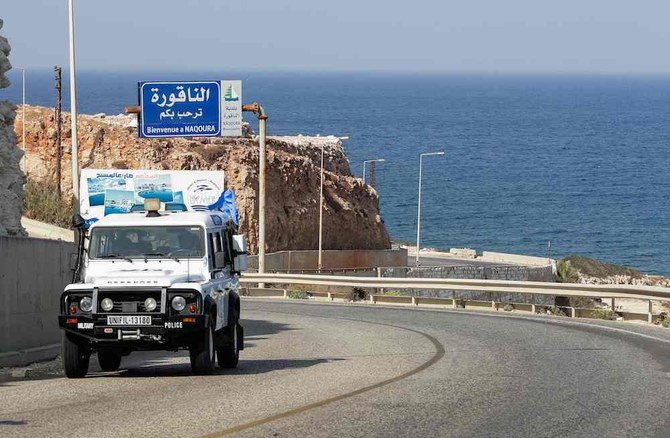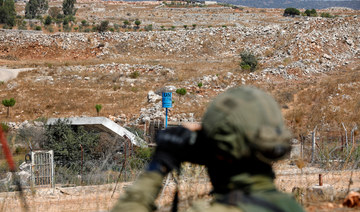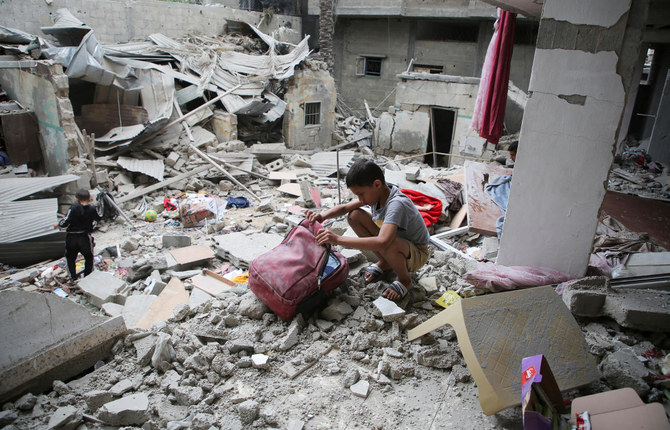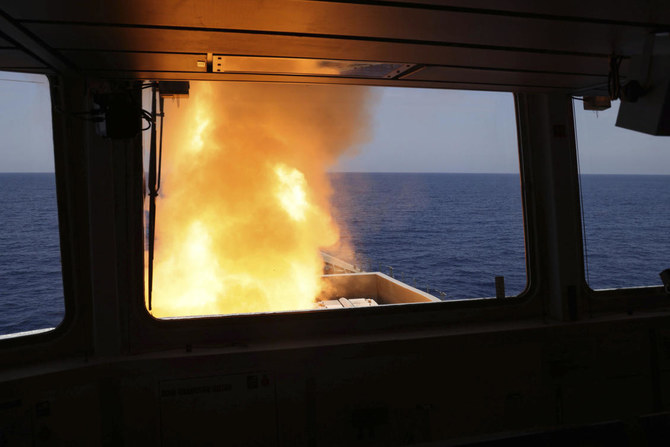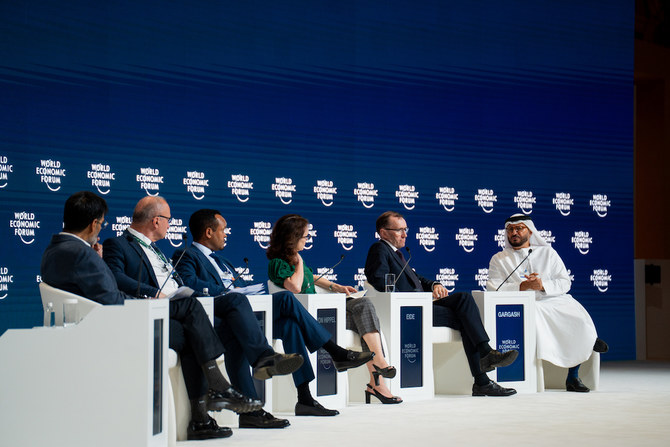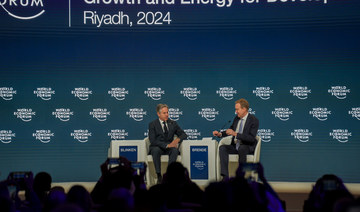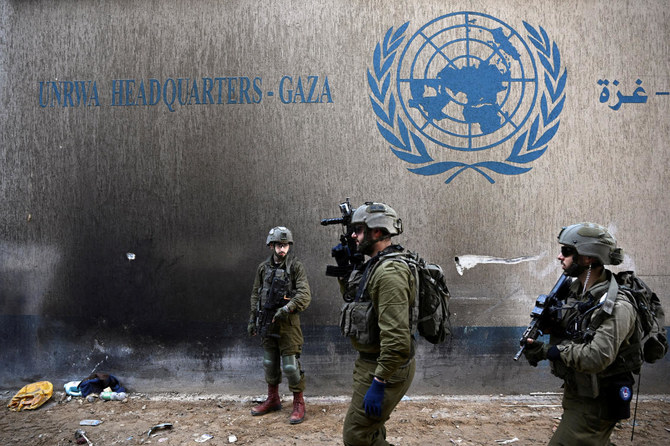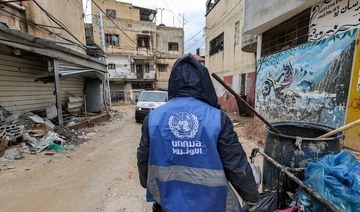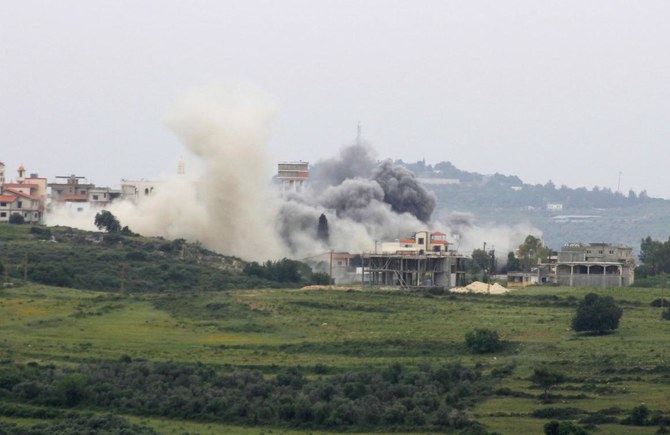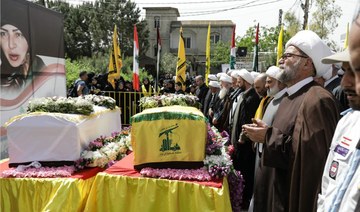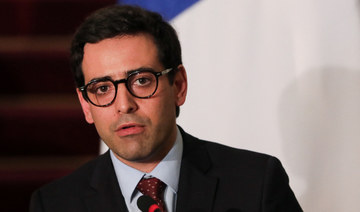BEIRUT: Lebanese officials are presenting a united front in mediations with the US over the country’s maritime border with Israel, with President Michael Aoun saying on Monday that Lebanon would submit its final remarks within days.
However, in order to avoid fears of normalization with Israel, the PM said that Lebanon would avoid signing a direct deal with its neighbor.
Aoun added: “The postulates and things it (Lebanon) wants are complete in the proposal of the US mediator Amos Hochstein regarding the demarcation of the southern maritime borders,” adding: “Some remarks will be submitted to Hochstein.”
Caretaker Prime Minister Najib Mikati said after meeting with Aoun and Parliament Speaker Nabih Berri on Monday that he “had some remarks and the technical committee took them fully into consideration,” adding that “Lebanon will send its response to the US mediator tomorrow.”
Mikati said: “Things are on the right track in the file of the maritime border demarcation and Lebanon’s stance is unified.”
Aoun presided over a technical consultative meeting that examined Hochstein’s written proposal over the southern maritime border. He then held a meeting with Berri and Mikati, joined by the technical and consultative team.
Berri said: “The stance is unified and the result is more than satisfactory,” adding that the US proposal took Lebanon’s requests into consideration.
Deputy Parliament Speaker Elias Bou Saab, who has led negotiations with the US mediator since the beginning of talks, said: “Lebanon will submit its remarks to Hochstein tomorrow at the latest and work is under way speedily.”
Bou Saab added: “We did not give any response, but remarks, and the underlying gaps are now minimal.”
He said: “Lebanon has obtained its full rights in the Qana field. The remarks that we made are legal and rational from a right holder’s point of view. If the remarks are taken into consideration as agreed, the deal will be signed in a matter of days. The disputed areas remain to be settled. We do not recognize the Israeli enemy and we will not co-sign any deal or convention. The US mediator was keen on respecting that and some arrangements were made for the signature.
“The Israeli enemy knows Lebanon’s strength. Talks between Lebanon and Israel are based on a balance stemming from ‘the army, the people and the resistance’ equation, in addition to the unified Lebanese stance.”
In its first response to the US proposal, Hezbollah, through parliamentary bloc chief Mohammed Raad, said that it “will not overlook Lebanon’s rights,” adding that “despite the border demarcation, the conflict with Israel will continue to exist.”
US Ambassador to Lebanon Dorothy Shea handed the US mediator’s proposal to the Lebanese president, parliament speaker and prime minister last Saturday. The proposal was also presented to Israel, so that both parties can add remarks in preparation for the next stage of negotiations.
According to people familiar with the draft deal and the ongoing negotiations, the deal serves as a settlement between the Lebanese and Israeli parties. It implies sharing the disputed area based on Line 23 and postponing discussions over the land point from which the maritime border demarcation advances to the land border demarcation phase.
Specialists were assigned the task of translating the English proposal for the president, the parliament speaker and the prime minister, as well as thoroughly verifying its texts, figures and attached coordinates.
An official source familiar with the negotiations said: “Lebanon will not sign any direct deal with Israel concerning the settlement being agreed upon and the deal will not be submitted to the Parliament for codification, as it violates the normalization principle.”
The source added: “Moreover, the deal won’t be submitted to the Cabinet for approval. Instead, Lebanon will submit a letter issued by specific parties in the country to the UN including Lebanon’s approval on the maritime demarcation.
“This is what Israel should also do so it (the deal) can be adopted in international law.”
Two separate copies of the US proposal are expected to be signed at UNIFIL headquarters in Naqoura. One copy will be signed by Lebanon and another signed by Israel in order to avoid concerns over normalization.
Information was leaked from the US proposal as a result of sharp Israeli political divisions, with parliamentary elections in the country set for Nov. 1. The leak showed discussions over compensation and security safeguards in the event that new gas reserves are discovered in the Qana field.
An Israeli mini cabinet is set to hold a meeting next Thursday to approve the draft and respond to the US in light of the Lebanese stance.
The US State Department said that Hochstein “continues to be fully involved to finalize discussions.”
It added: “We presented a US proposal on a final agreement to demarcate the maritime borders between Lebanon and Israel, and we welcome the consultative spirit between both parties to reach a solution.
“A permanent settlement is possible.”



